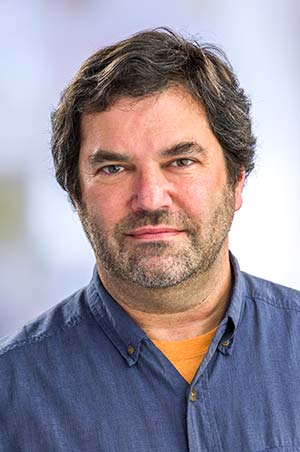Keith Loeb, MD, PhD
Professor
Translational Science and Therapeutics Division, Fred Hutch
Professor
Public Health Sciences Division, Fred Hutch
Dr. Keith Loeb is an experimental hematopathologist. His basic science studies have focused on molecular processes leading to genetic instability and cancer. Using preclinical models, Dr. Loeb explores how abnormal cell cycle regulation impacts cell growth, differentiation and stem cell maintenance. His work has shown that misregulation of cyclin E, a key factor in driving DNA synthesis, can lead to chromosomal abnormalities and cancer. The loss of regulatory pathways that normally inhibit excess cyclin E function promotes more aggressive cancer development. Dr. Loeb is currently studying mutations that arise in super-enhancers and their relationship to chromosomal instability and gene expression. Dr. Loeb’s clinical work focuses on the pathologic complications of blood stem cell transplantation and hematopathology. He is an expert in the diagnosis and evaluation of graft-vs.-host disease and infectious complications associated with blood stem cell transplant. Dr. Loeb is currently studying the impact of donor-derived microglial cells in the brain following transplant.
Other Appointments & Affiliations
Affiliate Investigator, Clinical Research Division, Fred HutchAffiliate Investigator
Clinical Research Division, Fred Hutch
Professor, Laboratory Medicine and Pathology
University of Washington
Education
MD, Medical College of Wisconsin, 1995
PhD, Biochemistry, Medical College of Wisconsin, 1994
Current Projects
Characterization of super-enhancer mutations in normal and malignant myeloid cells
Donor cell engraftment in the microglial compartment in stem cell transplant patients
Effect of ETS transcriptional factors in promoting acute myeloid leukemia
